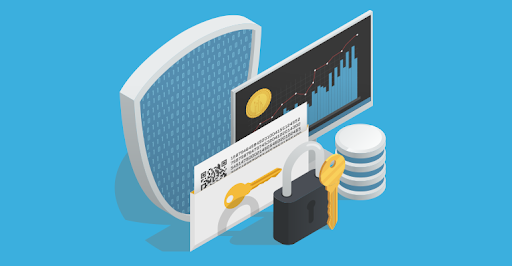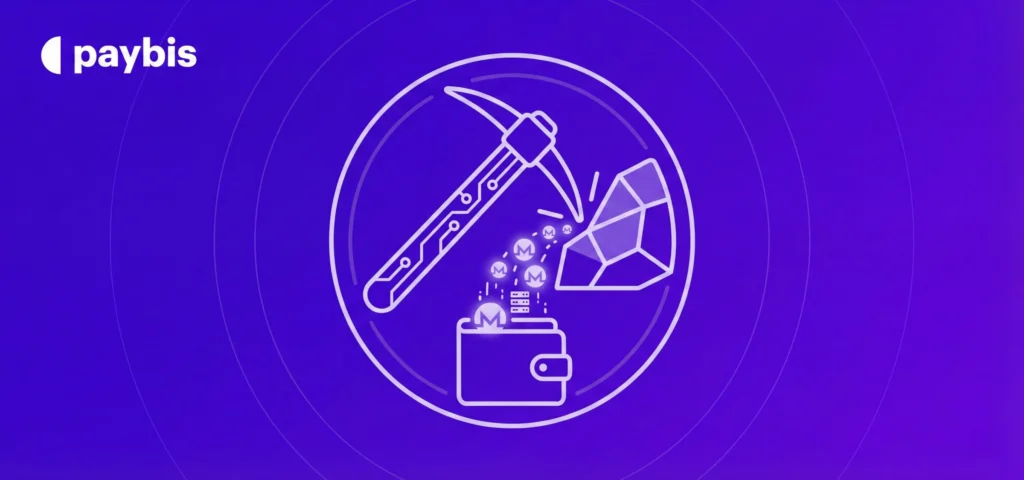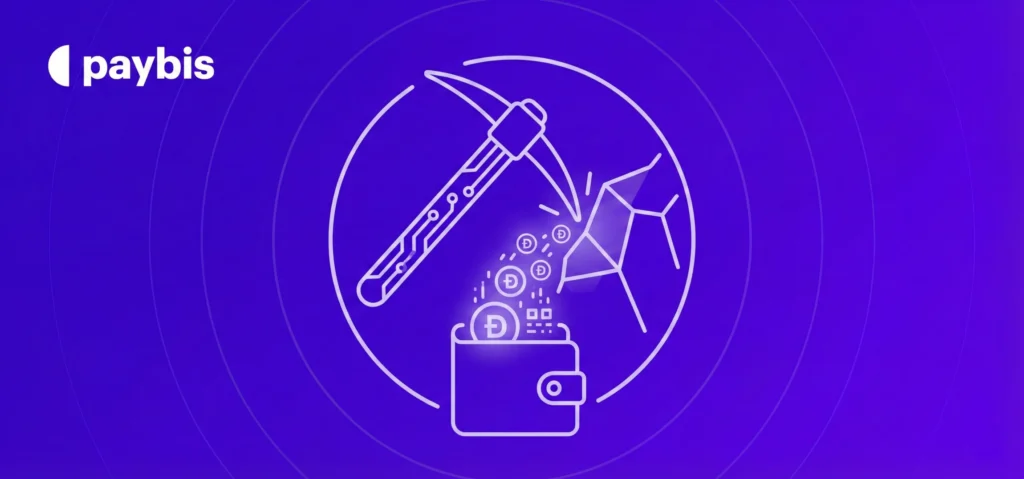14 Benefits of Cryptocurrency over Other Digital Assets
Starting with Bitcoin in 2009, crypto-investors have been closely observing the shift towards a decentralized future. The benefits of cryptocurrency over traditional currencies are constantly increasing, especially in these uncertain economic periods.
The majority of people, however, still think that Bitcoin is nothing more than a gateway to illegal activity. It’s quite easy to understand this viewpoint when looking at the media:
Money laundering, scams, fraud, black markets, we’ve heard it all. And even now, with a lot more information on the true nature and potential of Bitcoin, the bashing keeps on going.
It almost seems as if the “big brother” is trying to suppress the coin’s price.
Why you might ask? Well, most cryptocurrencies are trying to give the power of finances back to its users. This makes banks scared. Instead of trying to adapt, they choose to hinder any technology that goes against their business model.
Their words are very loud and, at the same time, empty. For people who choose to do their own research, it is quickly understood that the arguments presented in such negative posts are at least invalid.
Therefore, in this article, we will go through the benefits of cryptocurrency and debunk some of these negative rumors. Stick around if you want to learn why crypto is a lot better than people claim, and how it is slowly changing the way money works.
Table of contents
Major Benefits of Cryptocurrency
Cryptocurrencies serve many purposes and some of the benefits stated below may not apply to all coins. However, this list gives a good overview of why you may want to get some digital coins.
1. Decentralization
Everyone talks about decentralization when it comes to cryptocurrencies, but what does the term mean?
Well, in short, decentralizing a service takes away the power from the central authority that manages and to distribute it and gives it to the ones that use it.
On a global scale, economical systems in place throughout the world are of a centralized nature. This means that there is one central authority in charge of handling finances for the people of their country.
The main disadvantage of this approach is that the top of the hierarchy must be relied upon flawlessly, which is impossible. Any wrongdoing, deliberate or unintentional, will have a negative effect on the entire system.
Cryptocurrencies were designed to counter this problem of centralized authorities and make financial systems more democratic and resilient to error. Instead of relying on a single point of authority, they allow the users that are participating in the network to make it more efficient.
And that is not only related to money transfers (a.k.a. Bitcoin). It can apply to any service.
With decentralized systems, you no longer need UBER to call a cab, or Airbnb to book a room. You can contact and make arrangements with the other party directly.
By using Blockchain technology, most cryptocurrencies are trying to achieve at least some degree of decentralization. This is the backbone of the many solutions blockchain technology proposes. We will explore this further in the next points.
2. Permissionless Peer-to-Peer
The peer to peer functionality is crucial to cryptocurrencies and derives directly from their decentralized nature. It’s one of the most important benefits of cryptocurrency, as it brings back privacy and allows users to deal with one another, without asking for permission.
Currently, this is not exactly the case. Here an all-too-common example:
When you want to create a bank account, you need to go to a bank and ask for permission to create and use an account.
This bank can, at any time, make your funds unavailable and even revoke access to them permanently, stating whatever reason they might find valid for doing so. They may not even give you a reason. Here is what happened to the former CFO of Paypal:
After being a customer of @BankofAmerica for 20 years, I received this notice today that they decided to fire me as their customer! With absolutely no explanation…. pic.twitter.com/IJu3peiIWX
— Roelof Botha (@roelofbotha) November 18, 2019
This situation is common for any 3rd party that handles your finances. PayPal, Banks, even digital wallets – you always need their permission to use your funds. And this goes far beyond finances. Any app, social media channel or other centralized platforms can do the same.
With Bitcoin and other cryptos, this is not the case. Instead, the only barrier is having a cryptocurrency wallet and internet access.
And as far as apps and other platforms are concerned, Ethereum, EOS and other similar platforms are working hard to give the power back to the people.
3. Global Access
More than 2 billion individuals throughout the world do not have access to proper banking services. Due to logistics, accessibility or other issues, they are unable to transfer or store money in another way than cash.
But what they do have, are mobile phones and access to the internet.
The ability to participate in the market using nothing but a wallet and an internet connection leads us to the next benefit of cryptocurrency:
Cryptocurrencies allow the unbanked to create and manage their own bank and handle their finances wherever they are in the world. They can receive, send and store money using a cryptocurrency of their choice wallet without having to go through a bank.
Developing countries are a prime example of that. By avoiding unreliable bank services or hyperinflation they manage to store their value safely.
4. Minimal transaction fees
When using banking or digital wallet services you are probably going to pay some fees.
After all, financial services are profit-oriented businesses.
While they might seem minor at first, transaction fees can quickly pile up, especially when you are doing multiple transfers with high volumes of currency.
On the contrary, when using cryptocurrencies, transaction fees are minimal if any. This amount is not linked to the amount you are sending and you have the option of choosing the fees by yourself, affecting how fast a transaction will go through.
5. Transaction speeds
Bank transfers, online or offline, are lengthy, and quite inconvenient in the fast-paced world we live in. If you need to make a quick payment using a bank service, you either have to pay a premium transaction fee or wait for several days.
Now, in all honesty, not all cryptocurrencies are made equal when it comes to transaction speeds. Bitcoin, for example, has been often criticized for its low scalability when there are a lot of users on the network.
But even then, “slow transactions” still take just a few minutes to complete, compared to the “1-5 business days” model of traditional banks.
On the other hand, cryptocurrencies like Stellar (XLM) or Litecoin (LTC) allow much faster transactions thanks to their block size. This improves the adoption potential for consumers and merchants alike.
6. Instant global transfers
Have you ever tried sending money abroad? It’s expensive, time-consuming and not very convenient.
Apart from that, transferring large amounts often might get you flagged by your financial service or even result in a temporary freeze of your funds.
When sending crypto, on the other hand, there’s no localization barrier or amount limit. You can send your funds globally, without worrying that your funds could be intercepted or your transfer delayed for any reason.
In short, cryptocurrency adoption helps international commerce through a faster, no-border approach and keeping fees at a minimum.
7. Universal Recognition
If you are a frequent traveler and do business on a global scale, you are often exposed to exchange rates and currency limitations when trying to perform a transaction.
You might even find it challenging to exchange your money.
With crypto, that’s not an issue. One of the benefits of cryptocurrency is that its value is universally and internationally recognized at a given value.
This will save you time when trying to determine the price of a transaction, as well as any fees that might be involved when exchanging money from one another.
As cryptocurrencies are adopted on a larger scale, it becomes easier to exchange money no matter where you find yourself geographically.
8. Asset Transfers
When you are buying real estate or even a car, you need to go through all the legal hoops and hurdles – brokers, bank transfers, percentage fees, etc. All of these add up to the final price of the commodity you are purchasing and make the process much longer than it has to be.
But cryptocurrencies are more than just digital money. Some blockchains, like Ethereum, propose the use of smart contracts to support safe and secure asset transfers.
Using crypto, you can safely transfer real estate in a matter of minutes, instead of days and weeks that you might be spending when going through a broker. 
9. Individual Ownership
One of the biggest benefits of cryptocurrency is that you own every single coin in your wallet.
Currently, financial services don’t follow this model. Every money-retaining service takes control of your funds and makes you abide by their terms of service. If they decide that you violated these terms, they might block access to your money and suspend your account.
With crypto, this is simply not possible. Their decentralized nature and peer to peer ability gives you full control of how you handle your finances. The only one writing the rules here is you.
10. Irreversible transactions – No chargebacks
Anyone that has used digital money services like PayPal on a regular basis, knows the pain of a payment dispute. Even credit card holders are able to dispute their purchase, usually for up to 60 days.
For a merchant that is awaiting payment, this is a major problem. They need to pass this waiting period to truly claim the money as theirs. Furthermore, chargeback disputes are a tedious process and can hurt them immensely if ruled against them.
Blockchain and cryptocurrencies solve this problem. Instead of a “pull” transaction where the merchant asks for information from the purchasing party, it’s the buyer that does a “push” transaction, sending money to the merchant.
Once this transaction is verified on the Blockchain and goes through, it cannot be reversed. This means that you need to be careful when sending cryptocurrencies. But at the same time, when you receive payment, you know it’s there to stay and it cannot be reversed.
11. Strong Security
Another one of the important benefits of cryptocurrency compared to traditional methods is their increased level of security.
People use the internet for their transactions on a daily basis. And with online payment methods, sensitive information is always required. Name, address, location, even account balance, and history.
These can be used by cybercriminals to hack your account and steal your hard-earned money.
Cryptocurrencies, on the other hand, use advanced cryptography and all of the information is virtually unhackable. Blockchain technology makes it impossible to falsify information or steal money from one’s wallet.
12. Investment opportunities
Even though the buying power of the US dollar keeps dropping throughout the years, $1 will always be equal to $1. Placing your fiat into a savings account might get you in the best cases, 1% interest on a yearly basis.
And that is a very generous amount.
Unlike fiat currencies, most cryptocurrencies do not have a stable value. The exception being stablecoins, whose value is pegged to different fiat currencies.
As a fairly new commodity, their price is very volatile, which makes them an interesting venture for aspiring investors or traders.
Bitcoin, for example, has been known to be a sound investment, especially in the long run.
On the flip side, other cryptocurrencies haven’t had such great ROIs, and have even proven to be a bad investment choice. But this was the case with the tech companies in the 90s as well. And those who bet on the winners ended up reaping enormous profits.
All in all, the cryptocurrency market is still young and there are a lot of lucrative opportunities. Just keep in mind to do thorough research before committing to an investment.
13. Better Privacy and Transparency
In a world guided by big data, it is important to safeguard at least some part of your privacy.
Digital wallet services and online banks store your personal information on their own servers, making them a liability. Moreover, when you make an online purchase, you are giving the merchant access to all kinds of sensitive information.
When using cryptocurrencies, you can choose to remain anonymous. No name, no location, no credit history. There is no way for someone to link a cryptocurrency address to your name except if you deliberately provide this information (whitelisting).
But anonymous doesn’t necessarily mean untraceable. In fact, it’s the contrary. This has been proven multiple times where authorities have been able to dismantle criminal rings because they used cryptocurrencies instead of cash.
Bringing us to another one of the benefits of cryptocurrency. Against common belief, they cannot be reliably used for criminal activities, unlike cash or offshore accounts.
14. No limitations
When creating a bank account or making use of a digital service, you will have to provide your personal info.
More often than not, you will need to provide proof of address and nationality. Next thing you know, they are restricting their services because you don’t have a fixed address or you aren’t a national resident.
Cryptocurrencies are, for the most part, limitless. Whether you are a traveler, expatriate or student in a foreign country, you can use your crypto to send and receive payments.
Wrapping it up
We sincerely hope that this article helped you realize how these benefits of cryptocurrency will play a big role in the future of the industry. Before we conclude, let’s check the most important benefits one more time:
- Decentralization
- Peer-to-peer
- Global access
- Low transaction costs
- High transaction speeds
- Instant delivery
- Universal recognition
- Individual ownership of assets
- Free access
- Greater security
- Investment opportunity
- Better privacy
- No limitations
Those are just the biggest points that you should keep in mind. From there on, you can dig deeper by doing your own research on individual projects that seem promising.
Disclaimer: Don’t invest unless you’re prepared to lose all the money you invest. This is a high‑risk investment and you should not expect to be protected if something goes wrong. Take 2 mins to learn more at: https://go.payb.is/FCA-Info












